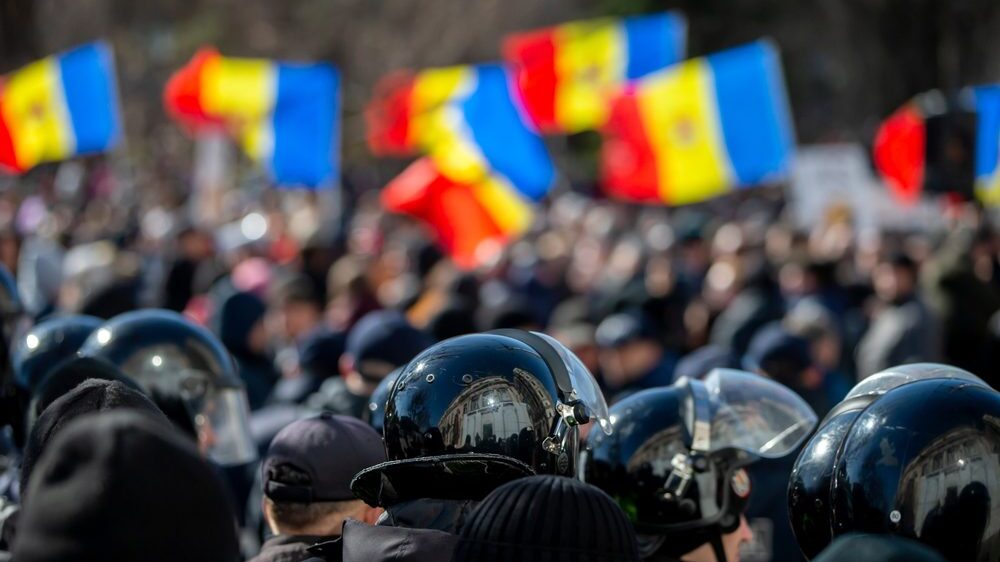“The document treats Moldova as a pliable satellite,” David Kramer, former U.S. Assistant Secretary of State said about Russia’s 10-year plan to regain control over its former republic.
Moscow plans to turn Moldova into a quasi-protectorate by 2030. The news came through a leaked document obtained through a joint investigation led by an international consortium of media outlets, including the Kyiv Independent.
The leak exposes the Kremlin’s goals to “ensure that Moldovan policymakers and society, in general, have a negative attitude toward NATO and that the country has a strong presence of pro-Russian influence groups in politics and the economy.”
According to intelligence sources who helped disclose the plan, the document, titled “Strategic goals of the Russian Federation in the Republic of Moldova,” was created in 2021, as a collection of the so-called “realistic 10-year goals” that the long-term Russian foreign policy is loosely built on.
These goals, outlined in the plan, revolve around the broad strategy of countering “the influence of external actors”—such as the EU, NATO, and the U.S.—and incorporating Moldova into the Russia-led structures instead, namely Moscow’s own version of NATO, the Collective Security Treaty Organization (CSTO), and the Eurasian Economic Union (EEU).
“The document treats Moldova as a pliable satellite over which [Russia] can exercise control and influence while seeking to block Western influence,” David Kramer, former United States Assistant Secretary of State said, commenting on the leak.
As previously reported, Russian political subversion in the former Soviet republic has become increasingly apparent in recent months, since a series of heavily anti-Western and pro-Moscow demonstrations shook the capital city of Chișinău, during which the explicitly pro-EU government, led by PM Natalia Gavrilița, was forced to resign.
Warnings of subversive activities on behalf of Moscow were issued by both U.S. and Ukrainian intelligence agencies, the first direct evidence of which emerged less than two weeks ago, when Moldovan police successfully cracked down on a cell of Russian agents preparing an insurrection.

Now, it appears these actions constitute parts of a longer plan, laid down before the war in Ukraine even started. Indeed, the 2022 invasion of Moldova’s north-eastern neighbor did derail some of Russia’s short-term plans for Moldova, since—as a consequence—Chișinău immediately sought to develop closer ties with the West and managed to obtain EU candidate status in June 2022.
In terms of the long-term plans, the leaked document provides valuable insight into Russian strategic thinking. The goals outlined by the plan are divided into three separate categories, discussing different, but overlapping and interdependent parts of the same strategy leading up to 2030.
On the political and security front, Moldova is to be turned into a Russian satellite state, with highly influential pro-Moscow groups taking over both the political and the economic elite and gradually sowing anti-NATO sentiment among the general population. The plan also details a solution to the Transnistrian conflict (Moldova’s break-away region, propped up by Russia for the past three decades) via “synchronizing the positions of Moldovan and Transnistrian leadership.”
Within the “humanitarian sector,” the 2030 goal has two main pillars: to ensure a stable presence of Russian media in Moldova, and to assign Russian “as the language of interethnic communication.” Finally, the goals within the “trade and economy” bracket seek to increase Moldova’s participation in the Eurasian Economic Union (EEU), while reducing “the share of third-party currencies in foreign trade settlements of Russia and Moldova.”
After all that has been going on lately, current Prime Minister Dorin Recean was not surprised to learn about the leaked document and what it entails but believes that, for now, Russia poses no direct danger in terms of military confrontation. “Militarily, Russia can’t advance,” he said but added that the economic and political pressure from Moscow remains a continuous threat to Moldovan sovereignty.
Source: The European Conservative




